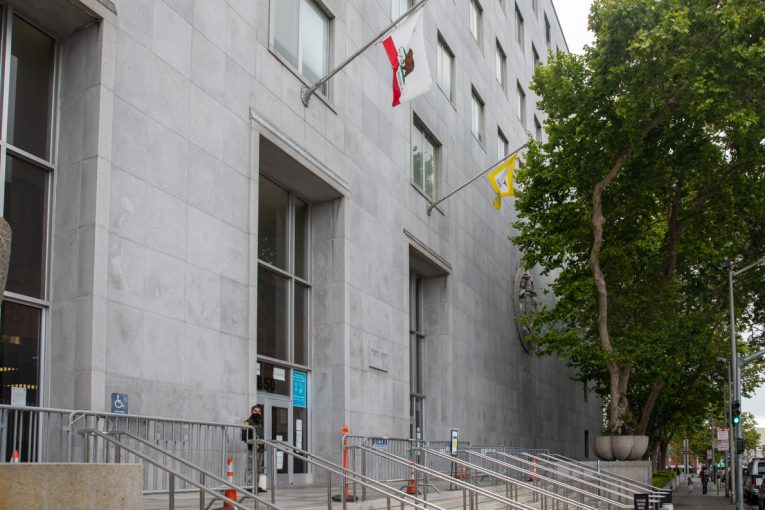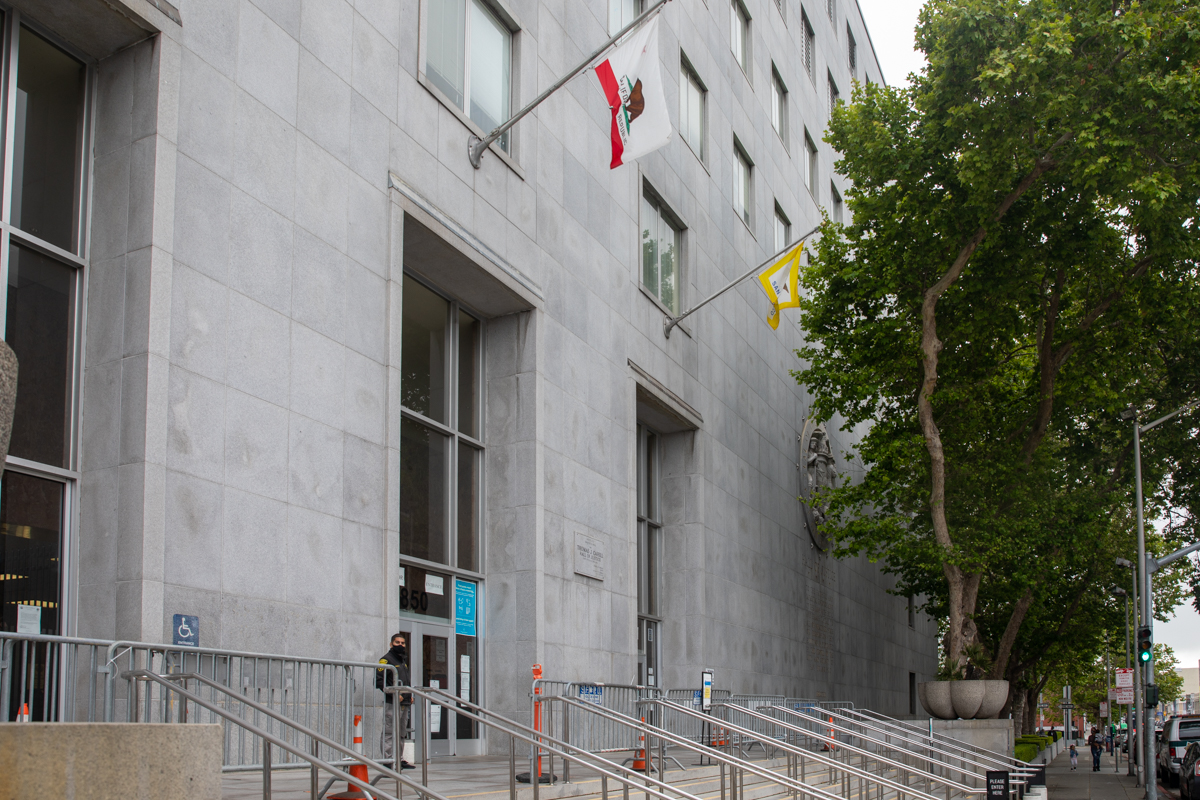

Special to the Vanguard
San Francisco, CA – As a matter of U.S. and California constitutional law, only a court may determine the conditions of release on electronic monitoring that are reasonable under the circumstances of each case. But in San Francisco, Sheriff Miyamoto requires all electronic monitoring participants to sign a form granting any law enforcement officer permission to conduct a search of their person, residence, vehicle, and property at any time, without a warrant or probable cause.
In addition, individuals also must sign an acknowledgment that the sheriff may share GPS location data collected from their ankle monitor with other law enforcement agencies, also without a warrant, probable cause, or even reasonable suspicion.
On Thursday, the ACLU Foundation of Northern California and the law firm Wilson, Sonsini, Goodrich & Rosati filed a class-action lawsuit against the city and county of San Francisco and Sheriff Paul Miyamoto, urging the court to prevent the San Francisco Sheriff’s Office from requiring that individuals agree to unconstitutional “four-way” searches and GPS location data-sharing as conditions of pretrial release on electronic  monitoring.
monitoring.
“In an outrageous power grab, Sheriff Paul Miyamoto is trampling the privacy rights of every person released pretrial on electronic monitoring in San Francisco,” said Shilpi Agarwal, legal director of the ACLU of Northern California. “Ankle cuffs are supposed to ensure that an individual remains in the Bay Area and shows up for court proceedings. They are not a license for law enforcement’s unlimited search and surveillance of vulnerable people who haven’t been convicted of a crime.”
The sheriff routinely shares real-time and historical GPS location data with the San Francisco Police Department and other law enforcement agencies upon request. During an investigation, police can use location data to track a specific person wearing an ankle monitor or conduct a virtual sweep to identify anyone on electronic monitoring who happened to be in the area when a crime occurred.
The private company that administers the electronic monitoring program may indefinitely retain the location data for anyone who has ever participated, including people who may never have been convicted of any offense. With the court’s ongoing trial backlog, exacerbated by court closures during the pandemic, some individuals have been on electronic monitoring for more than a year, generating a treasure-trove of location data police can sift through to track their movements over time. In 2019, the sheriff turned over GPS location data collected from four individuals; by 2021, that number had surged to 179.
Currently, more than 200 people awaiting trial in San Francisco are subject to Sheriff Miyamoto’s unlawful conditions. Given efforts to reduce the jail population and provide alternatives to pretrial detention, that number is likely to increase.
“In a very concrete and brazen way, the sheriff is exploiting his duty to administer an electronic monitoring program by treating a court’s order of release as a blank check to conduct fishing expeditions for any potential wrongdoing,” said Justina Sessions, a partner at Wilson Sonsini who has expertise in class-action litigation. “This is enormously harmful to people released on electronic monitoring, and critically, it is completely illegal.”
The ACLU and Wilson Sonsini filed the complaint in San Francisco County Superior Court on behalf of three Bay Area residents released pretrial on electronic monitoring. The suit also includes taxpayer plaintiffs Community Resource Initiative, a San Francisco-based organization that works on diverse criminal justice and community empowerment issues; and Diana Block, co-founder of the California Coalition for Women Prisoners.
“All San Franciscans are entitled to their constitutional rights, whether they are in jail or subject to other forms of incarceration,” said Anthony Ginez, executive director of Community Resource Initiative. “We strongly object to the sheriff’s use of electronic monitoring, and our tax dollars, to extend carceral surveillance beyond the jail’s walls and into our communities and homes.”
“Stripping away privacy rights is illegal and only tolerated because of the disenfranchisement of those directly affected, who are indigent and 70% Black and Brown,” said San Francisco Public Defender Mano Raju, whose office raised the flag on this issue and helped the ACLU identify the plaintiffs in this case.
Although they believe the four-way search and data-sharing conditions are unfair and punitive, the three class representative plaintiffs agreed to the sheriff’s rules because they otherwise would have remained in jail, unable to care for a child, go to work and attend a high school graduation.
In addition to barring the four-way search and data-sharing conditions, the lawsuit seeks to force the San Francisco Sheriff’s Office to automatically expunge an individual’s GPS location data when their criminal case ends.
Read the complaint here.
